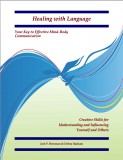Most readers of this column will recognize KISS as standing for “Keep it Simple, Stupid.” It is a not-so-polite way to remind people that the simple solutions are often more reliable and effective than the complex. While some things, such as computers, may be inherently complex, a good rule is things should be no more complex than necessary. This allows people to be able to understand and use what you are presenting.
The idea of the wisdom of simplicity is definitely true of language. In general, people understand short words and sentences (fewer than 17 words) better than they do “big” words and long sentences. English has three types of sentence construction:
- Simple: A “simple” sentence has one subject and one verb. It may or may not have an object. Take this pill. The subject is an “understood you,” the person being addressed. The verb is “take,” and the object is “pill.” You can add a bit more information and still have a simple sentence: Take one of these pills with breakfast and one with dinner. The adverbial phrases describe how many pills and when they should be taken, but the sentence is still “simple” and easy to understand.
- Compound: A “compound” sentence has at least two independent clauses (sentences) which are joined by a conjunction. Take one of these pills with breakfast and one with dinner, but be sure to take them with water rather than coffee or alcohol. Note that a compound sentence increases what’s called the “cognitive load” of the sentence. The listener needs to track and organize more information to understand and follow the directions.
- Complex: A “complex” sentence contains an independent clause (a sentence), and one dependent clause (not a complete sentence). Take one of these pills with breakfast and one with dinner, while remembering to avoid taking them with either coffee or alcohol. Complex sentences are also higher in “cognitive load” than simple sentences.
Mark Nepo, author of New York Times #1 bestseller, The Book of Awakening, says when you have something important to say, repeat it three times: once for each ear and once for the heart! When you are asking someone to follow a complicated routine, use written instructions, and use simple sentences. Tell them three times how important it is for them to follow them.
Send your questions about how other-than-conscious communication skills can hurt or help your patients and clients to Joel P. Bowman (Joel@SCS-Matters.com) or Debra Basham (Debra@SCS-Matters.com), co-developers of Subtle Communication Systems. We will provide answers to those for you. For more information about Neurolinguistic Programming (NLP), Hypnosis or Hypnotherapy, or about the Imagine Healing Process, visit:http://ImagineHealing.info or http://SurgicalSupport.info.
 Healing with Language: Your Key to Effective Mind-Body Communication is available for a limited time for $10 plus $5 shipping within the U.S. For volume orders and overseas shipping, check with Debra. See the Table of Contents and List of Exercises in PDF format for more information about this comprehensive text and training manual.
Healing with Language: Your Key to Effective Mind-Body Communication is available for a limited time for $10 plus $5 shipping within the U.S. For volume orders and overseas shipping, check with Debra. See the Table of Contents and List of Exercises in PDF format for more information about this comprehensive text and training manual.
